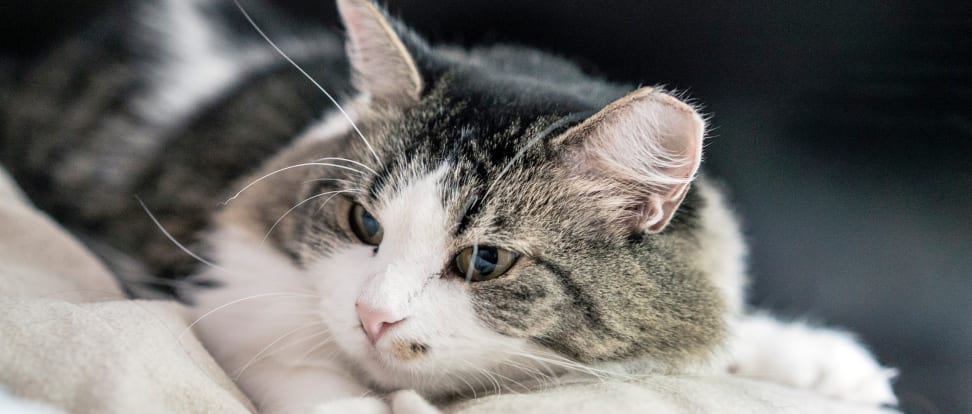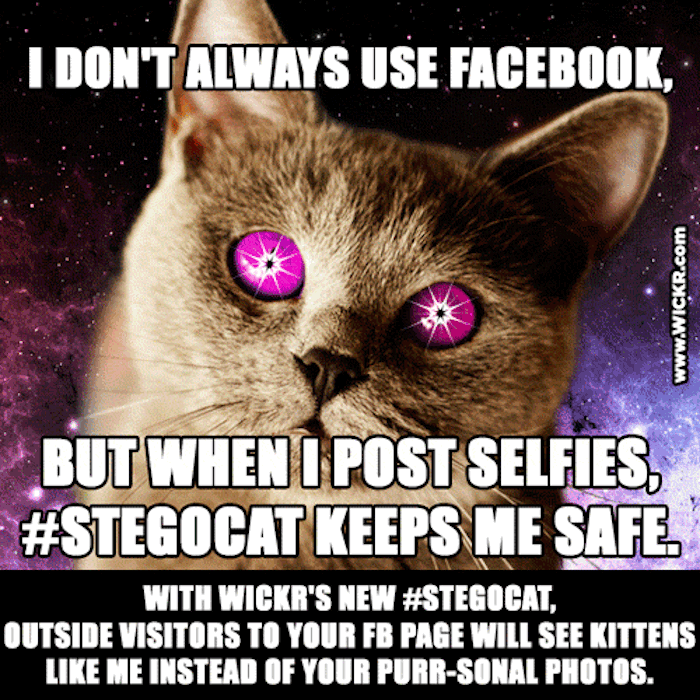Wickr App Promises Secure Messaging Via Cat Photos
Finally, a social sharing app for privacy gurus.
 Credit:
Reviewed.com / Kyle Looney
Credit:
Reviewed.com / Kyle Looney
Products are chosen independently by our editors. Purchases made through our links may earn us a commission.
For some, social media is a way of life—for others, it's a means-to-an-end. But whatever your feelings, there's no denying its impact.
But now a lot people are starting to grow wary of big sites like Facebook and its subsidiary Instagram, mostly due to their rampant collection of personal data and the fine print that grants them ownership over anything you post. While we doubt Facebook is about to start selling prints of you on your holiday, it is certainly feasible that it would use them for their own marketing purposes—and without your knowledge.
This is why apps like Wickr are so compelling. Billed as a "top secret messenger," Wickr allows you to share photos and messages between friends, but retain personal control over where the content ends up. It uses steganography—the act of concealing or encrypting data—to create feeds and message relays that can neither be tracked or monitored by others—at least, that's what Wickr claims.
The company's secure servers enable complete peer-to-peer encryption, and no metadata or personal information is ever collected. If we're being honest, the sophistication of the encryption is unlikely to be up to NSA standards, but that shouldn't stop you from using it.
Wickr is basically as if Instagram and Snapchat were combined into one, with an even greater focus on privacy. Users share content with their friends in a familiar scrolling feed (just like Snapchat, Skype, or WhatsApp), only messages "self-destruct" within 24 hours—leaving no trace of their existence, and never falling into the hands of Facebook. (In fact, Wickr sees Facebook as a competitor, expressing its desire to supplant the notoriously data-hungry company.)
And this is where the fun part comes into play. Like most messaging apps, Wickr allows users to post their content to social media. But when a Wickr image is sent to Facebook, the link is always rendered as a "decoy" image of a cat. Once a Facebook user clicks on the link, she'll be asked to leave Facebook and open up the Wickr app, which will then take them to the original image or feed that was shared.
{{ photo_gallery name="Screenshots" }}
If it sounds like a lot of extra work that's because it is. But for people who treasure their privacy or fancy themselves world class spies, it's probably worth the fuss. Wickr claims to use military-grade encryption—a fact that might relieve people who fell victim to the recent Snapchat hacks.
Certain people will absolutely go through the additional steps—there's no question about that—but what about the people they are sharing with? While the theory sounds great, it's hard to believe that the added steps won't become irritating for the majority of users. After posting just a few times, I found the fun of acting like a super spy wore off. But that's just me.

While we can't say if Wickr is going to be the next big social app, it does have a niche audience. The value of privacy is only going to increase as social media pries further into daily life. Additionally, if apps like Snapchat continue to be hacked or if Facebook decides to tighten its grip on photo ownership even more, you could see a spike in the popularity of encrypted media. It seems that's a scenario Wickr is betting on.
